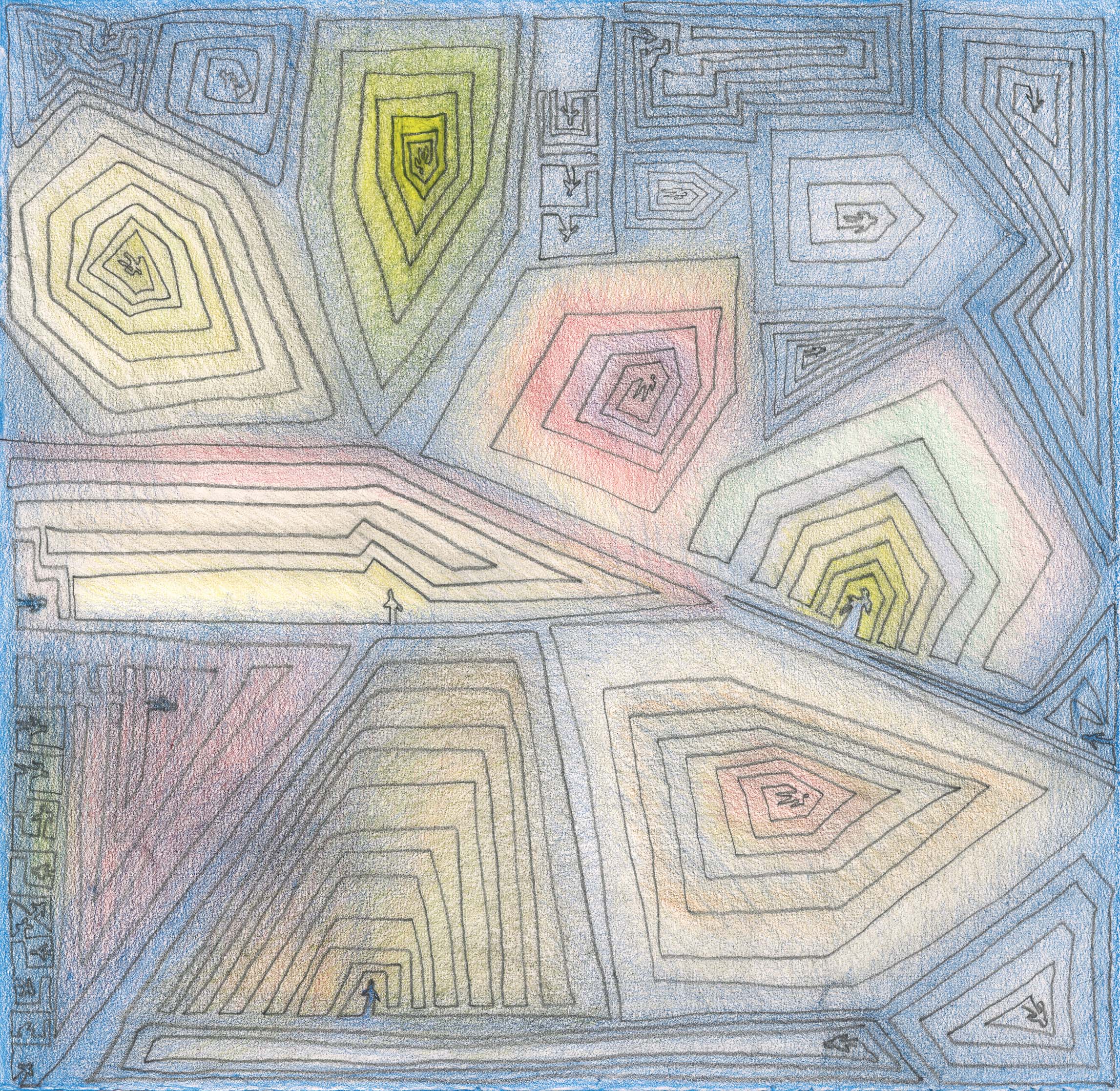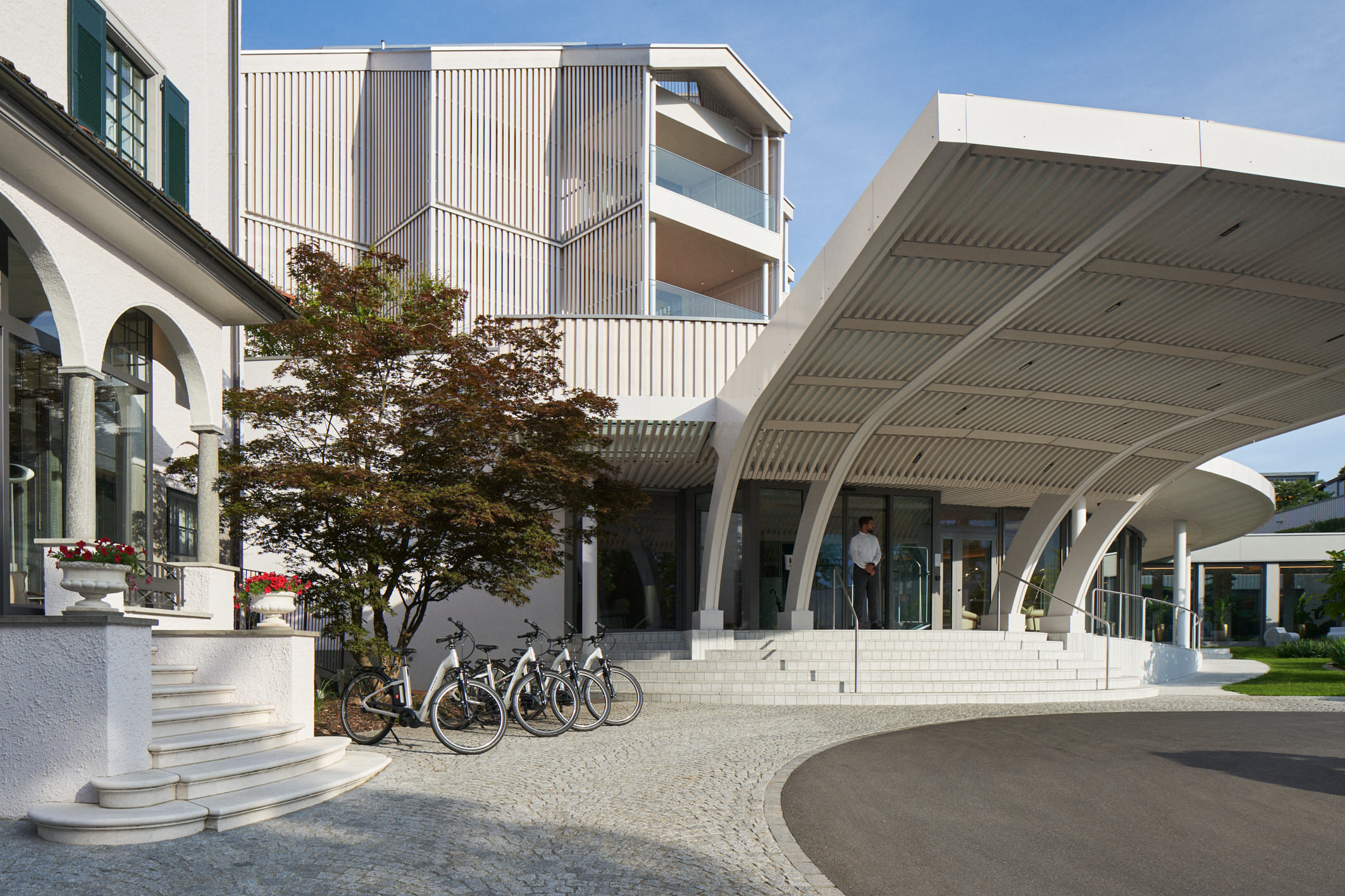When Davide Macullo was a little boy growing up in Giornico, Switzerland, every Monday night his restaurateur mother would take him to the best restaurants in the region to check out the competition. It was at one of these restaurants that he first observed abstract art: “From that point at the age of five, I never stopped drawing,” he says. “That is why I do this job as an architect – because I love to draw.”
Macullo’s precocious talent saw him develop into Europe’s most highly esteemed architects, with a specialism in the psychology of space. His studio has since completed 700 projects in 35 countries, and won or been nominated for 80 awards, six of which were for Chenot Palace Weggis.
ORIGINALLY KEEN TO PURSUE A CAREER AS A CONCEPTUAL ARTIST, MACULLO CHANGED THE COURSE OF HIS LIFE. “IT WAS TOO MUCH OF AN ABSTRACT JOB.
It was interesting to see how I could serve people in a better way – architecture has the power to passively influence the lives of people,” he says. “Art is something that humankind needs, and architecture is the most complete form of art because it is the art you address as your own habitat.”
Macullo went to learn the tools of the trade with celebrated Swiss architect Mario Botta. “I went there for six months, and it became 20 years and 200 international projects.” He founded his own atelier at Davide Macullo Architects in 2000, and the ethos of the studio is one of ‘drawing from context’. “Architecture has a particular language and code, and when it is repeated it is not respectful of the environment, the people, their feelings, and the place. And, it’s boring. Every time we design, we find something new – the moment you stop finding something new, it’s over.”
REGENERATIVE DESIGN IS THE FOUNDATION OF THE PHILOSOPHY OF DAVIDE MACULLO ARCHITECTS.
When you build something, you take care of two ecologies: the growth ecology – geography, climate, economy, politics, and mathematics. Then there is the intimate human ecology, which is how people feel, what they want to represent, their aspirations, ambitions, and most of all how they sense the space. The people are always the protagonists,” he says.
Macullo believes that the role of architects of the future will change dramatically. “We are facing a period where buildings will not be built on site but in laboratories. There will be interdisciplinary work with chemists, IT and AI experts, software engineers, everything will be printed or glued. The construction industry will change completely so the architect’s role should be to take care of the psychological wellbeing of people.”

IT IS THIS PHILOSOPHY OF CARING FOR PEOPLE WHICH INFORMED DAVIDE MACULLO ARCHITECTS’ APPROACH TO THEIR DESIGNS FOR CHENOT PALACE WEGGIS.
“We treat the people who will stay there like you would a bowl full of water. They will be very fragile and so we designed spaces that give stability and tranquillity within a dynamic environment. We want the buildings to take care of them, not shake them too much. Architecture should put people at ease in their space; our job is to take care of their souls and minds.”
Overlooking Lake Lucerne with an extraordinary backdrop of the Alps, the buildings’ sense of nature flows inside and outside of the spaces. “It is a place where people go to feel better, so we want the building to accompany and support them without pressure. They enter a 24,000sqm space but never feel the size of it, they always feel safe and at home.”
THE FACT THAT GUESTS STAY AT CHENOT PALACE WEGGIS FOR A WEEK WAS ALSO A CONSIDERED IN THE DESIGNS.
“The flow and light inside the hotel and outside in the gardens is a continuous flow from one emotion to another. You never get bored in the space, the senses are kept alert but in the measure that you don’t have to be involved,” he says. “When we design, we can change the mood of the people in the space, to influence their emotions and help them disconnect from the negative. The architecture is an important medicine.”
AS AN ARCHITECT, MACULLO’S GREATEST PRIORITY FOR THE BUILDINGS HE DESIGNS IS SIMPLE:
“to make people happy,” he says. “A building has to give you the chance to reconnect with your senses and improve yourself. When you are in your own space, it should allow you to fly to your own world, whether that involves using the latest technology or having a cup of tea. It doesn’t have to be intellectual – a building just needs to make you feel good.”

From the top to the bottom: Swiss House XXXII in Rossa, Grisons in Switzerland; Drawing by David Macullo representing his personal vision on space; Chenot Palace Weggis.
